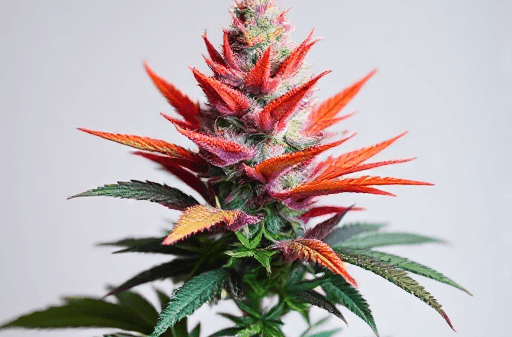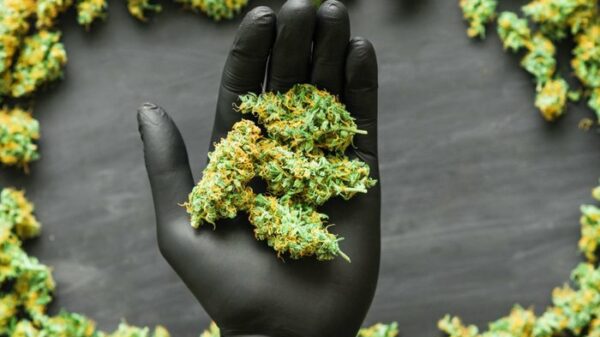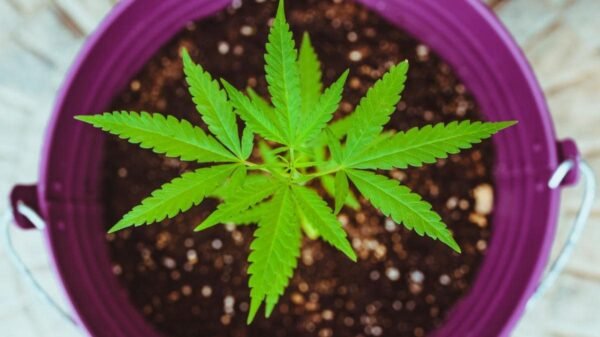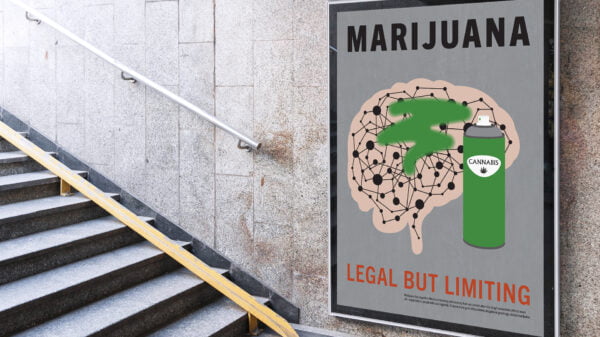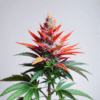On the second day of the fourth month, the globe celebrates World Autism Awareness Day. A day to acknowledging the existence of autism and the roughly four million extraordinary individuals around the world living with the symptoms associated with an impacted nervous system. A day where universal landmarks like the Eiffel Tower and the White House are emblazoned in blue lights in support of awareness and fairness for those with this lifelong developmental disability. A day to embrace autistic people and celebrate their unique qualities. We take a look at ASD and how medical marijuana matters!
WHAT IS AUTISM
Autism Spectrum Disorder, or ASD, is a lifelong developmental disorder that impairs social interactions and communication. ASD also covers the enormous scope of challenges associated with social skills, repetitive behaviour, speech and non-verbal communication. Autism currently affects one in every 54 children in the United States, which has increased by 10% from 2014.

Individuals with ASD have a one-of-a-kind operating system, enabling them to process life and experiences in a unique way. Although researchers are still dumbfounded by ASD, they have concluded that the average autistic brain is larger than that of a person living without ASD. The scientist knows ASD affects the linkages between areas of the brain responsible for emotions, sensory input and executive functions. Another interesting finding is that boys are four times more likely to be diagnosed with ASD than girls.
AUTISM AWARENESS

World Autism Awareness Day is observed annually on 2 April. The global observance was declared in 2007 during the United Nations General Assembly after the motion was tabled by the State of Qatar. WAAD shines a light on Autism Awareness and the growing global health crisis surrounding autism, increase the development of world knowledge and stress the importance of early diagnosis and early intervention. Moreso to celebrate the unique talents and skills of persons with autism.
UNITED NATIONS
The UN hosted a virtual event on April 8 2021, with the goal to build a more inclusive and accessible world that recognises the contributions of all people, including those with disabilities like ASD. The global Covid-19 pandemic has created new challenges and obstacles for those initiatives lobbying for inclusivity for autistic persons. Creating a greater need for Autism Awareness! The silver lining is that we have been given the opportunity to completely reimagine the workplace, to create an environment that tolerable and strives for diversity, inclusion and equity.
MEDICAL MARIJUANA

Cannabis has been used for its medicinal properties for millennia, with the earliest evidence dating as far back as 10 000 years. The emperor of China; Shen-Nung, who was also a pharmacologist, wrote a book containing the medical benefits of cannabis in 2737 BC. An ancient Egyptian medical papyrus, dating back to circa 1550 BC, is one of the oldest preserved medical documents. The 20-meter long scroll is filled with remedies and elixirs made from the cannabis plant.
By the end of the 19th-century cannabis was regulated as an illicit substance. The 1961 UN Single Convention on Narcotic Drugs scheduled cannabis as a schedule 1 substance, which means it was believed to have no accepted medical use.
The slow, yet ever-developing, re-legalization of cannabis for medicinal use has created opportunities for scientists and pharmacologists to conduct valuable and meaningful research. Which intern has led to the remarkable discoveries of cannabinoids, the human endocannabinoid system and how they work in relation to each other. The health and wellbeing benefits of medical marijuana are now available to more humans than 25-years ago.
RESEARCH

We have made a list of research that has been published on the efficacy of medical marijuana to alleviate the symptoms associated with ASD.
#1 Brief Report: Cannabidiol Rich Cannabis in Children With Autism Spectrum Disorder and Severe Behavioural Problems
In October 2018 a retrospective feasibility study was published in the Journal of Autism and Developmental Disorders, supporting the feasibility of CBD based cannabis trials in children with ASD. The study assessed the tolerability and efficacy of CBD rich medical cannabis in children with ASD, using the Caregiver Global Impression of Change (CGIC). Of the 60 patients who experienced adverse behaviours like sleep disturbances, irritability and loss of appetite; 61% reported greatly improved symptoms.
#2 Real-life Experience of Medical Cannabis Treatments on Autism: Analysis of Safety and Efficacy
This study was published in January 2019 in the US National Library Medicine. It was aimed at characterizing the epidemiology of ASD patients receiving medical cannabis treatment and describing its safety and efficacy. Data was collected, over two years, from 188 patients medicating with cannabis oil that had a CBD concentration of 30% and 1.5% THC. The study concluded that medical marijuana was well tolerated, safe and effective at relieving symptoms associated with ASD.
#3 Oral CBD Use in Children With Autism Spectrum Disorder to Treat Related Symptoms and Co-Morbidities
This study was published in the US National Library of Medicine in January 2019. The aim was to report on the experiences of parents who administer oral cannabinoids to their children with ASD. Under supervision, 53 children with a mean age of 11 received CBD treatment over an average of 66 days. Self-injury and rage attack improved by 68%, sleep-related issues improved by 71% and anxiety improved by 47%. This study did however have some negative feedback, with a small percentage reporting their symptoms had worsened.
#4 Effects of CBD Enriched Cannabis Sativa Extract on Autism Spectrum Disorder Symptoms
This observational study was published in October 2019 in the Frontiers in Neurology. The compassionate use of medical marijuana, with a CBD to THC ratio of 75:1, was observed in 18 patients with ASD. The patients reported ameliorated symptoms like seizures, Attention Deficit Hyperactivity Disorder, sleep disorders, communication and social interaction skills. The results reported that CBD enriched extracts greatly improved ASD symptoms and substantially increase the quality of life for ASD patients and caretakers.
#5 Autism Spectrum Disorder and Medical Cannabis: Review and Clinical Experience
The results were published in the 35th volume of the Seminars in Pediatric Neurology in October 2020. It concluded that medical marijuana is well-tolerated and effective in easing the symptoms associated with ASD. Amongst the group, 91% of patients reported improved epilepsy and 60% had experienced less aggression and self-injury behaviour.
#6 Cannabinoid Treatment For Autism: A Proof-Of-Concept Randomized Trial
The latest research around cannabis and ASD was published on 3 February 2021 in the US National Library of Medicine. It was found that orally administered plant-derived cannabis extract is well tolerated and reduces disruptive behaviour in children with Autism Spectrum Disorder.
Israeli researchers assessed the safety and efficacy of CBD dominant whole-plant extract and CBD dominant pure cannabinoids. The test was a randomized and placebo-controlled trial of 150 young people with ASD. The patients received one of the two extracts and the placebo at different stages during the trial. Disruptive behaviours, measured on the CGI-I scale, improved 48% in patients on whole plant extract and 38% in patients on pure cannabinoid.
Medical Marijuana Matters
CBD rich cannabis treatments show great potential in decreasing disruptive behaviour associated with ASD. Researchers also observed weight loss amongst patients who had previously experienced excessive weight gain due to antipsychotic medication.
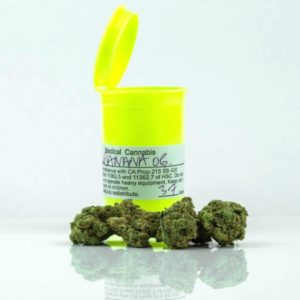
Cannabis has shown great potential in treating the life-altering symptoms associated with ASD. Researchers have the opportunity to study the effects of cannabis and how it can be utilized as a medicine for a wide range of ailments, disorders and generally increase the quality of life for those living with these conditions.


























